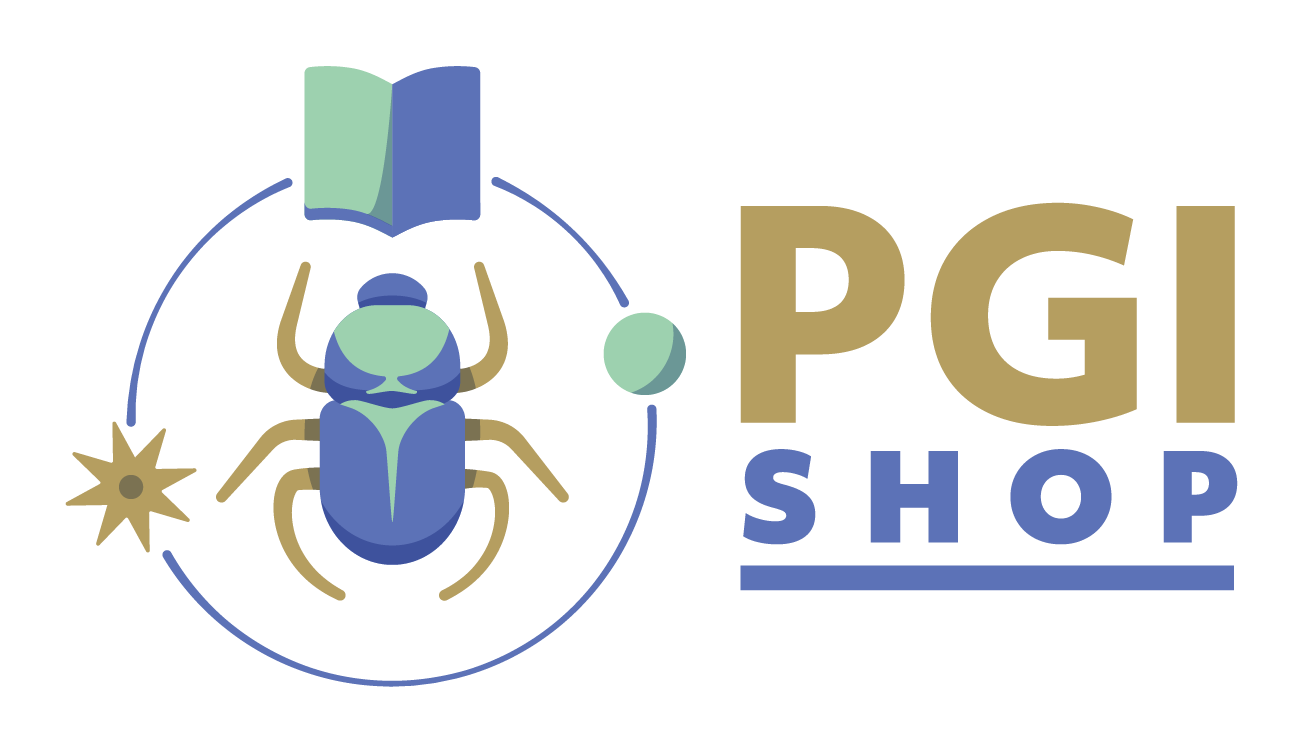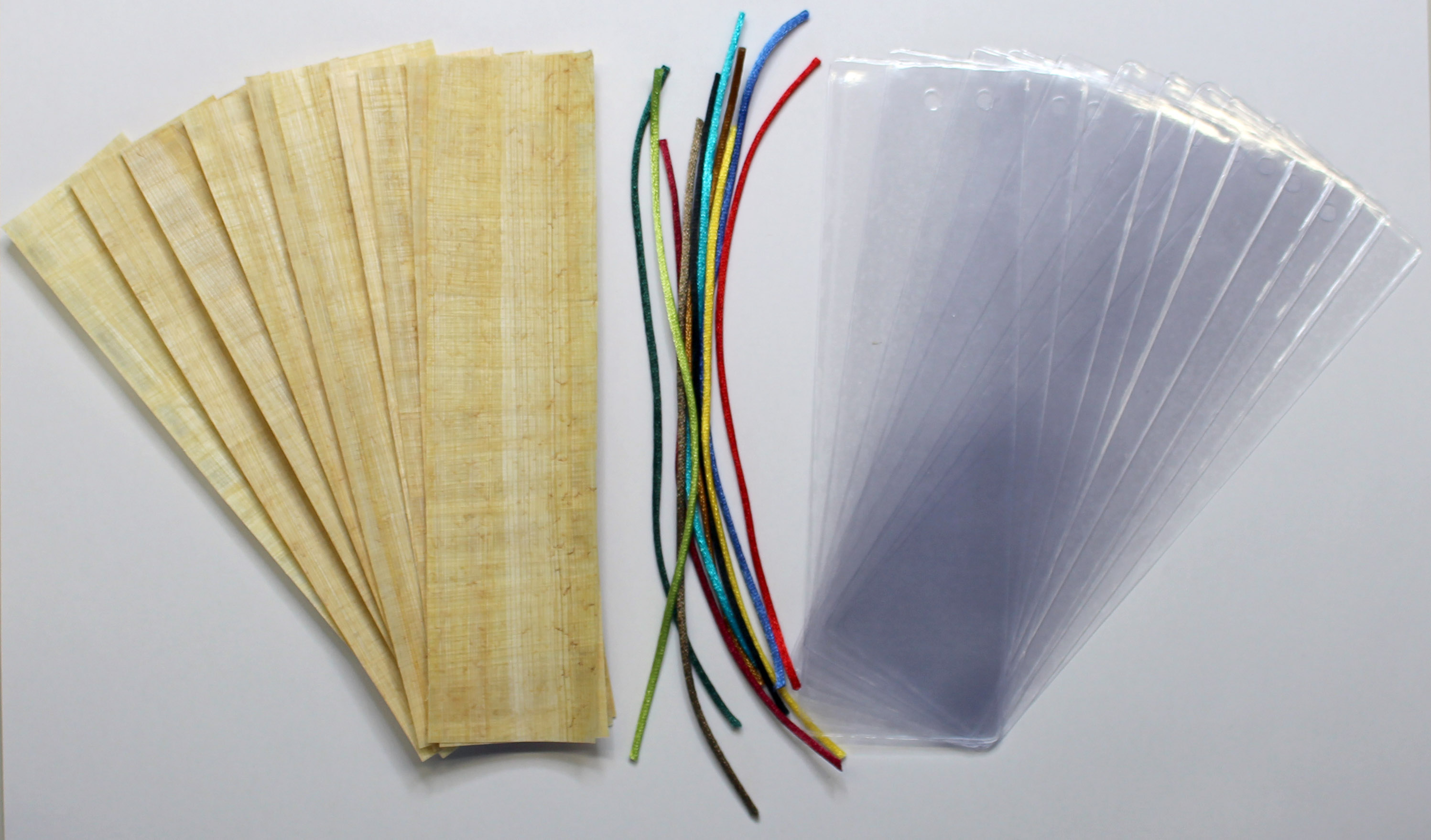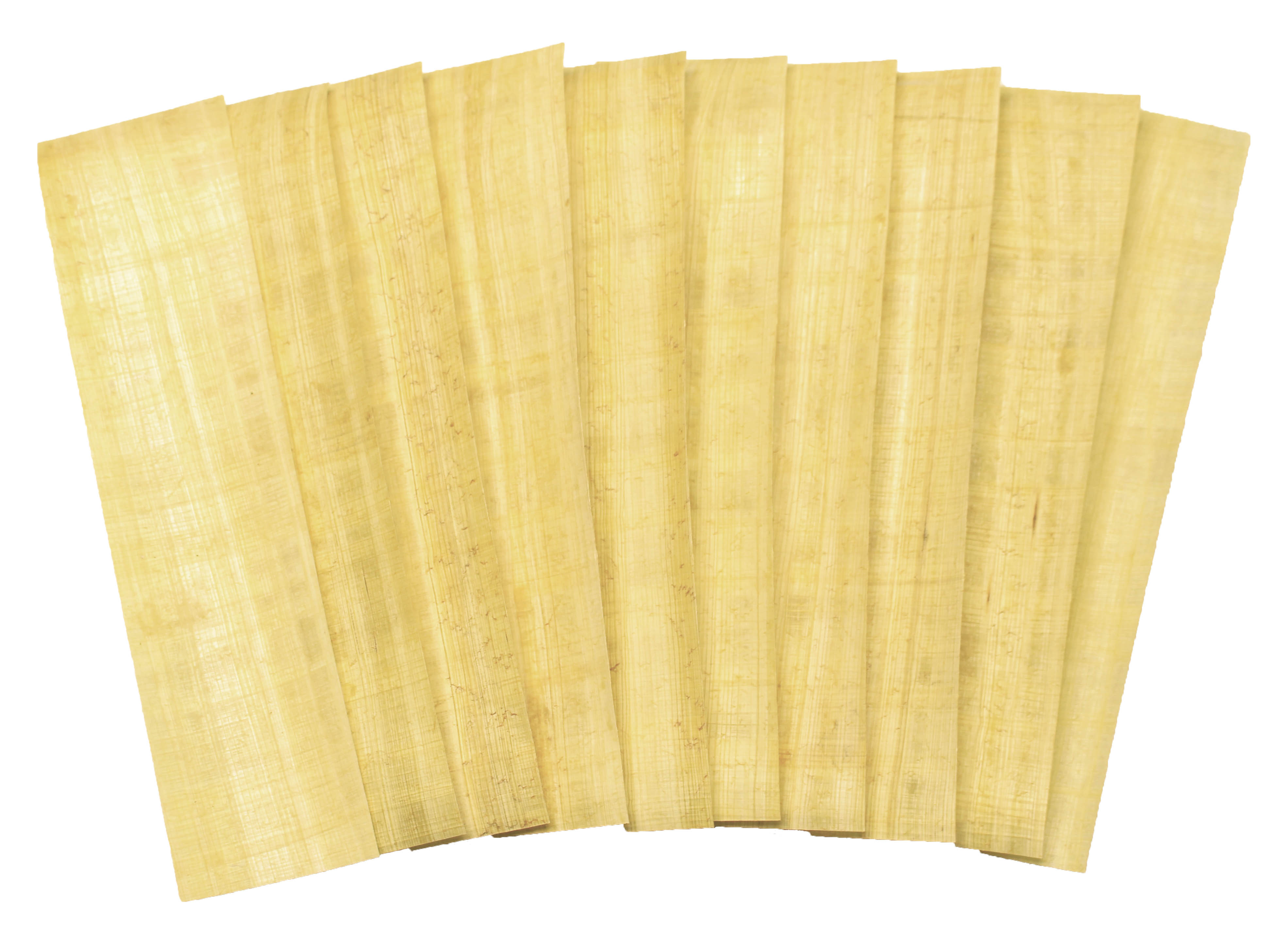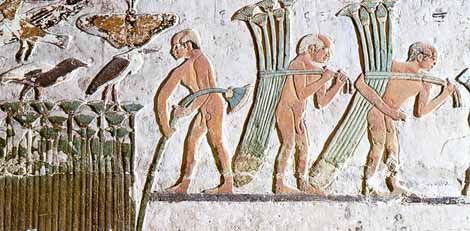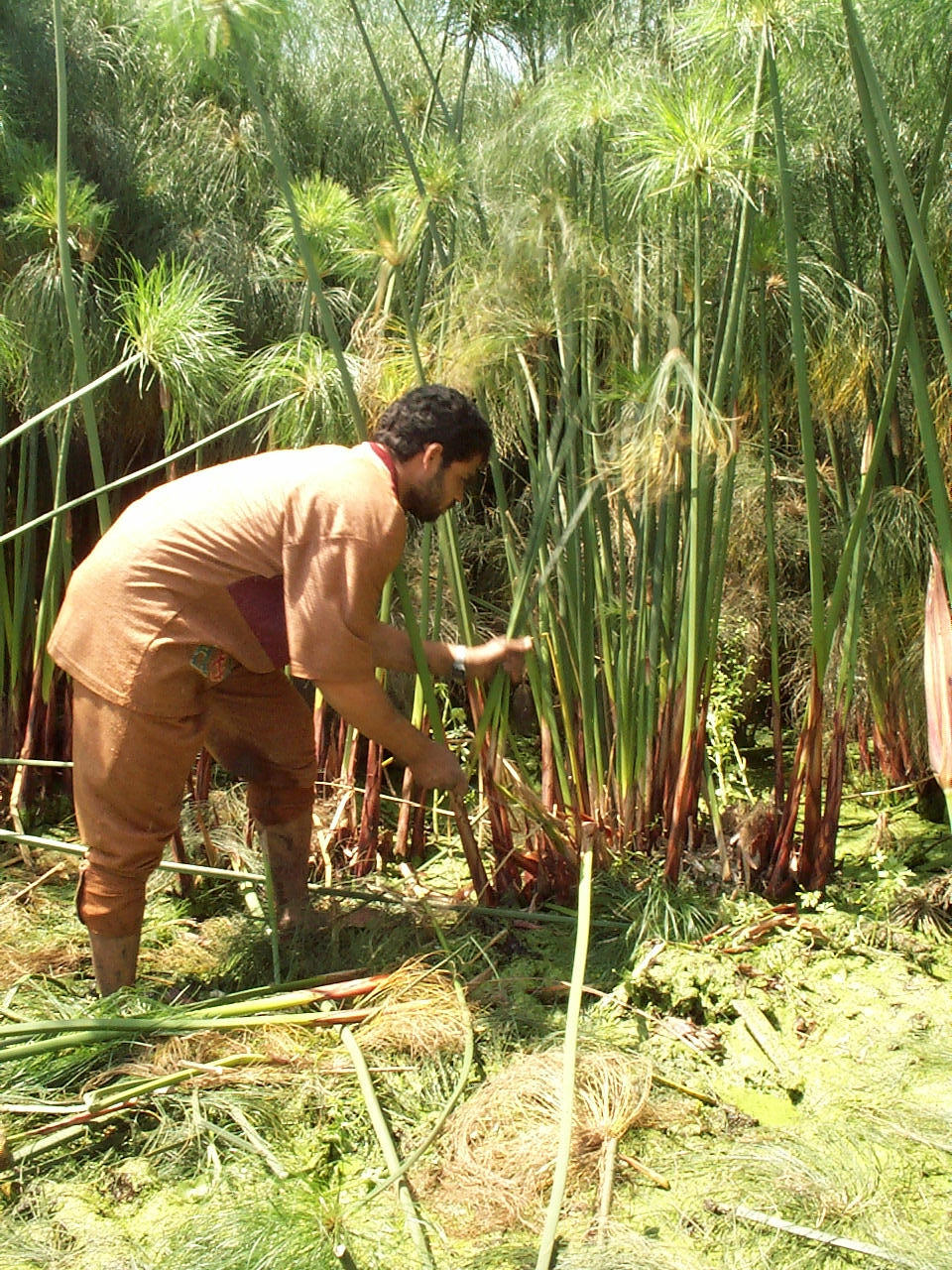10 Papyrus bookmarks 5 x 19 cm & protective sleeves
10 Egyptian blank bookmarks - 5 x 19 cm - cut and 10 plastic sleeves with decorative ribbon
Bookmarks can be individually decorated and designed with names, texts, pictures or sayings.
Ideal for themed school and art lessons. Can be written on and painted in many ways.
Papyrus also finds versatile use in the art sector and museum education.
PGI Papyrus
made from hand-laid papyrus, produced in Egypt
fair trade with controlled cultivation
paintable with pens and watercolours
Tip:
12 double-fibre pencil - article no. 2701
Ruler with hieroglyphic stencil - Article No. 2721
Our papyrus offer
We offer light-coloured, hand-laid natural papyrus from Egypt. From the size of a bookmark, over A4 and A3 up to oversizes of 92 x 192 cm, as well as the mostvarious papyrus rolls, you are sure to find the right papyrus sheet. The design possibilities with papyrus are manifold. It can be inscribed with hieroglyphics or painted with various motifs. Tempera or watercolours, ink or felt-tip pens are suitable; it can even be printed with an inkjet printer.
Papyrus is a natural product
In the Nile Delta, papyrus leaves are still produced in the traditional way. Families in the countryside harvest the papyrus stems, which can be up to 6 metres high, and process the raw material into papyrus leaves with great skill. Carefully crafted papyri are produced in several steps, which always have an individual, handcrafted character.The history
Papyrus has been produced and used as a writing material in Ancient Egypt since the 3rd millennium BC. It was always a highly valued product whose sole marketing rights lay with the Pharaoh. The German word “Papier” goes back to the Greek word “pápyros”, which in turn is based on the ancient Egyptian word “pa-en-per-aa”, which roughly means “the pharaoh’s”.If papyrus is stored in a dry place, it has a very long life. Thus, papyrus scrolls or fragments that provided information about life in Ancient Egypt were and are still being found. The most famous papyrus scrolls are probably the Herculaneum Papyri, which were buried and preserved by the massive eruption of Vesuvius in 79 AD. Another 400,000 papyri from the ancient Egyptian Oxyrhynchus are still waiting to be deciphered and will once again bring much of interest to light. Julius Caesar is probably responsible for the greatest loss of knowledge in history. His soldiers set fire to the library of Alexandria, destroying thousands of important papyrus manuscripts.
